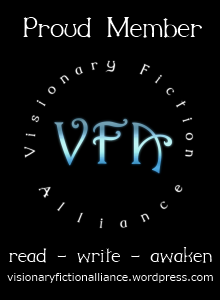|
A Course in Miracles uses religious-sounding language. For some Course students, words like 'Christ', 'forgiveness', or even 'miracle' may carry unhelpful associations. While the Course interprets these words differently from how they've come to be used in traditional Christianity, when we read them the likelihood is that we'll interpret them through the filter of our previous learning. That may make it harder for us to engage with the Course's teaching wholeheartedly and with an open mind.
It's important to remember that words are only symbols. They point beyond themselves. If I talk about the Holy Spirit, for example, and that doesn't resonate, translate it into language that does… Maybe 'Inner Guide' or, as Quakers might say, 'the promptings of love and truth in your heart'. One word which can often be a particular barrier is 'God'. I trust that "God is Love" (1 John 4:16 is, for me, one of the most beautiful Bible verses). Nevertheless, perhaps unconsciously, the word God still carries associations of a stern father figure. So, when I read the word God in the Course, to remind myself that this is not the judgmental (man-made) 'god' I may have heard about in the past, I add “…Who is Love”. For example, in Lesson 44, I read, "We cannot see truly apart from God, Who is Love." If my perception is clouded by thoughts of judgment or condemnation; if there's a lack of love, I'm not seeing truly. In the Course, some words are virtually synonymous... God is Love. (See Workbook Lesson 103, "God, being Love, is also happiness"; and Workbook Review V, "God is but Love, and therefore so am I."). God is also Oneness. (See, for example, Workbook Lesson 169 5:1-2: "Oneness is simply the idea God is. And in His Being, He encompasses all things."; and Text 27:VIII.6:2: "Into eternity, where all is one, there crept a tiny, mad idea, at which the Son of God remembered not to laugh".) Exchanging one word with its synonym sometimes helps me shed fresh light on what a 'tricky' passage may be saying. Take this one: "The world was made as an attack on God" (Workbook, Part II, 3.2:1 - 'What Is the World?' section). That's a dramatic statement, but I find it hard to get my head around. But if I read it as, "The world was made as an attack on Oneness", I'm still being authentic to its intended meaning (I think) - and it begins to make more sense. The world, with it myriad forms, witnesses to separation... and, of course, separation appears to deny Oneness. Here's another example, drawn from Lesson 51 of the Workbook: "I have judged everything I look upon, and it is this and only this I see. This is not vision. It is merely an illusion of reality, because my judgments have been made quite apart from reality". To say that 'my judgments have been made quite apart from reality', is to say they've been made apart from God (or apart from the 'Voice for God', which the Course uses interchangeably with 'Holy Spirit'). God is Love. If my judgments are made apart from God, they'll be lacking love. To quote from the new book I'm writing: "God, Who is Love, creates only like Himself. And what doesn’t arise from God can’t exist in reality. Thoughts that we’re separate, or sinful, or anything less than whole don’t come from God. If we accept that, those thoughts can’t be real. And what isn’t real can have no effect on reality. The world we perceive is built on meaningless thoughts of separation. But neither our thoughts nor their effects alter the truth of who we are, or make the slightest dent in God’s love." From time to time, I'll post some picture quotes, where I've replaced the original word used in the Course with its synonym. I'll also post them to my Pinterest site. In the quote below, the original is, "The world was made as an attack on God" (Workbook, Part II, 3.2:1 - 'What Is the World?' section).
0 Comments
In the second in a series of blog posts, I continue my exploration of doorways to an inner state of peace.
2. If you lose touch with Christ, be kind. In a state of unity consciousness, Love requires no conscious effort. It simply is. In the physical world, our experiences of Oneness are fleeting, “for now we see only a reflection as in a mirror” (1 Corinthians 13:12). But when awareness of True Self fades, we can still make a conscious decision to be kind. The Dalai Lama famously said, “My religion is very simple. My religion is kindness.” Imagine if that were everyone’s creed. After a tough day at work recently, I stopped off at a café that I visit from time to time and bought a slice of carrot cake to enjoy on my way home. When I got on the train and opened the box I discovered... TWO slices of cake. (I'd only paid for one.) This little act of kindness from the waitress brightened my day. I really could have my cake and eat it! Being the recipient of an act of kindness feels great, but being the one who offers kindness is equally rewarding. As I reflected in the booklet Things to Remember, “When I warm to people, it warms my heart. When I offer love, I expand; I feel more fully alive. When I give of myself, I do receive. This I know experientially”. Conversely, when I’m not kind – when I show a lack of care or consideration for others – I retreat further from my True Self. Physically, I experience this as a shrinking; a hardening or clenching within my body; a tangible lack of ease. Being kind to others brings me joy, and a sense of peace. I don’t have to believe in oneness to experience its effects. As an important aside, we need to be kind to ourselves too. Remember, “Love your neighbour as yourself” (Mark 12:31). At a deep-seated level we may think ourselves unworthy of love and compassion. (Have you ever chided yourself as “stupid”, or metaphorically beaten yourself up, when you’ve made a mistake?) But if God Loves me – and God must, for “God is Love” (1 John 4:16) – who am I to disagree? Next time: The way of presence. A good friend who knows that I’m studying A Course in Miracles (ACIM) asked me whether I disagree with any of its teaching. Put another way, do I believe that everything ACIM teaches is true? I start from the position that the highest truth is Love. True Love expresses itself as kindness, compassion and forgiveness (non-judgement). It lays down no conditions. It is experienced by the giver as Joy and a sense of Peace. It is a well that never runs dry. “The Course does not aim at teaching the meaning of love, for that is beyond what can be taught. It does aim, however, at removing the blocks to the awareness of love’s presence, which is your natural inheritance.” (From the Introduction to the Text of ACIM.) Since A Course in Miracles is all about what Marianne Williamson has called “a return to Love”, I find it a powerful signpost to Truth. If I’m visiting China, I may see a signpost by the side of the road. But that sign will only be helpful to the extent that I understand what is written on it - if I don’t know the Chinese language, I’ll be at a loss. So it is with ACIM (or other spiritual teachings). I need to understand not only the language, but also the Spirit in which it was written. Otherwise I’ll misinterpret it, and apply it in an unhelpful way. To illustrate this, I’ll focus on Workbook Lesson 136 - perhaps one of the ‘hardest’ lessons in ACIM. When I approach it from an intellectual standpoint, I find it problematic. The idea for this lesson is that sickness is a defence against the truth: “Sickness is a decision. It is not a thing that happens to you, quite unsought, which makes you weak and brings you suffering. It is a choice you make, a plan you lay, when for an instant truth arises in your own deluded mind, and all your world appears to totter and prepare to fall. Now are you sick, that truth may go away and threaten your establishments no more”. This appears to be saying that we are so afraid of our Oneness with God - full acceptance of which means surrendering our separate identity - that to reinforce our separateness a part of our mind engenders illness and pain. We do this subconsciously. We do it even to the point of physical death, which ‘proves’ we were right (in our belief in separation) and God/Love was wrong. Immediately I object. What about babies with life-threatening illnesses? Or, for that matter, kind and spiritually-aware people who get ill? To say that, on some level, they chose disease sounds uncaring, nonsensical or even abhorrent. Later in the same lesson, we are given an explanation: “You can but choose to think you die, or suffer sickness or distort the truth in any way. What is created is apart from all of this. Defences are plans to defeat what cannot be attacked. What is unalterable cannot change.” (My emphasis.) In other words, our body gets sick and dies but Spirit - the truth of what we are - is unharmed. God thought us into being and we remain in God’s Mind. As God is eternal, so are we. When I reflect on ACIM teachings, I can listen to one of two inner voices. If I listen to the part of me that delights in separation, I react against the teaching - or I may accept it on a superficial level, but don’t let it touch me in a way that would affect how I am in the world. If I allow Spirit to interpret the words, then perhaps I may see them in a different light - and what was problematic begins to make sense. It is my continuing identification with the body (mine or another’s) and my belief that it is real which makes the Course’s teaching so hard. My true Inner Guide (as well as experienced teachers such as Ken Wapnick and Robert Perry, to name but two) can help me understand what ACIM is saying. It can also guide me when to share a particular teaching with another person - and when it would be kinder not to use words. Sickness may be “a defence against the truth” - but it is part of our experience in this world. Those who suffer need compassion, not doctrine - however well-intentioned. In any case, purest truth is not found in words, but in kindness. The ultimate test of truth is love. That is because Truth is Love. Let me, then, show compassion for those experiencing physical or emotional pain. Let me acknowledge that these are part of the human/physical condition. But let me also hold in my mind an awareness of Spirit; of the Divine Essence in all of us which is beyond pain and death. I need not “answer that of God” in others by using words. Instead, let me trust that my unspoken faith in their Wholeness will, on some level, reach their soul. The expression "to answer that of God in everyone" is well-known in Quaker circles. But what does it mean? This is what came to me in a quiet time recently:
To "answer that of God" is to experience a moment of joining with another person, a holy instant in which, at some deep level, we recognize that 'other' as our Self. |
AuthorPeter Parr: Quaker, writer and former member of the British minigolf team. (Actually those are all just roles I play. Words can't describe who any of us really are.)
|
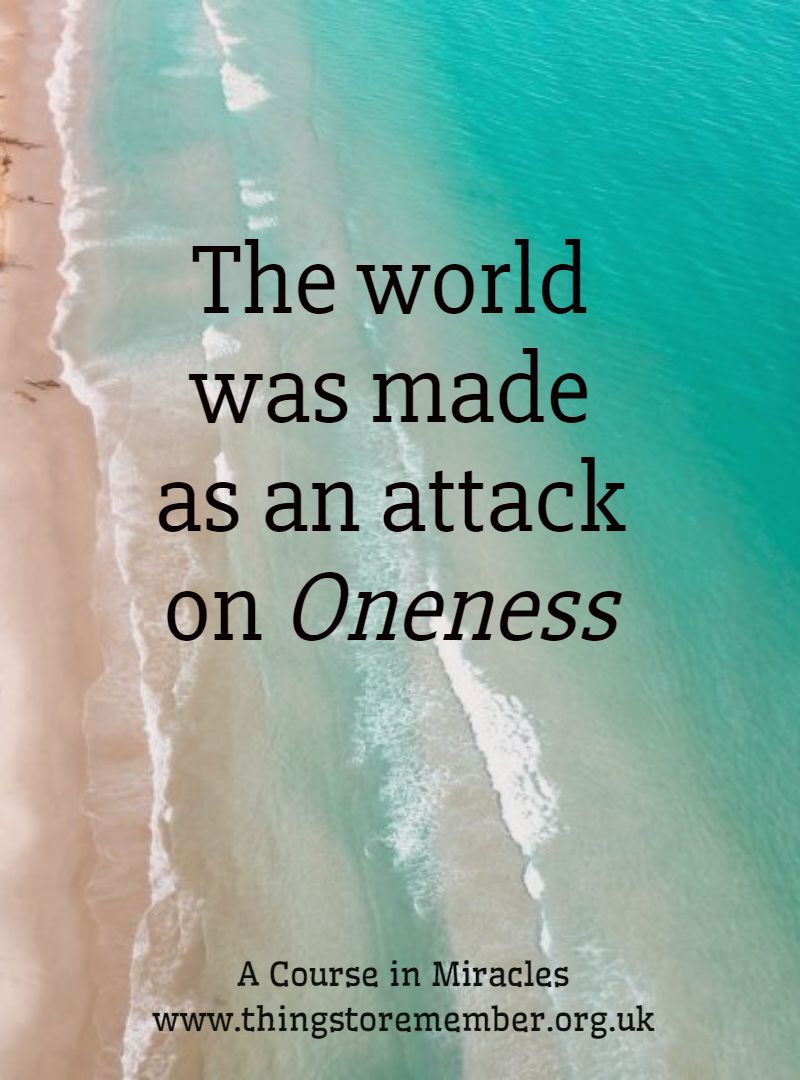
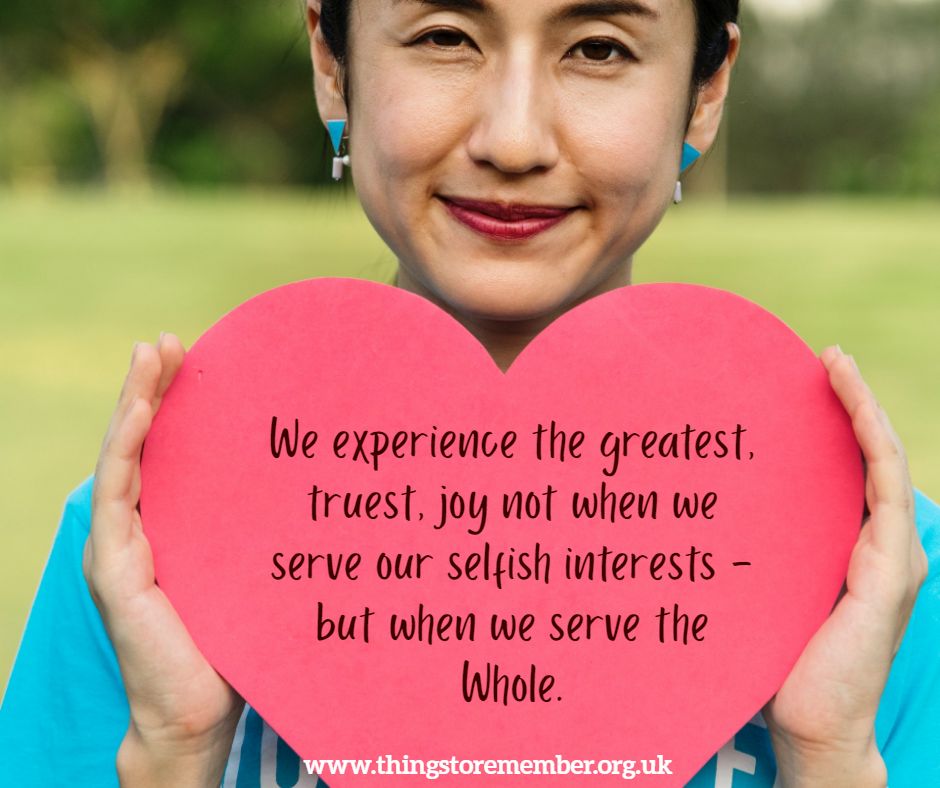
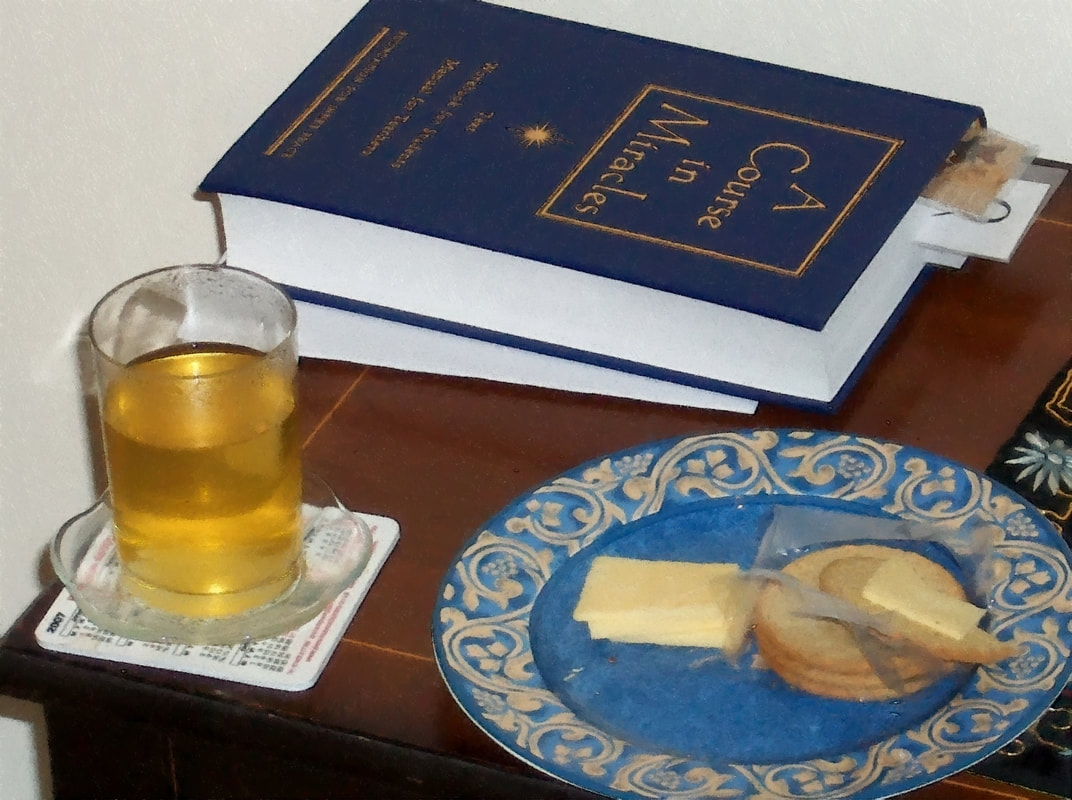

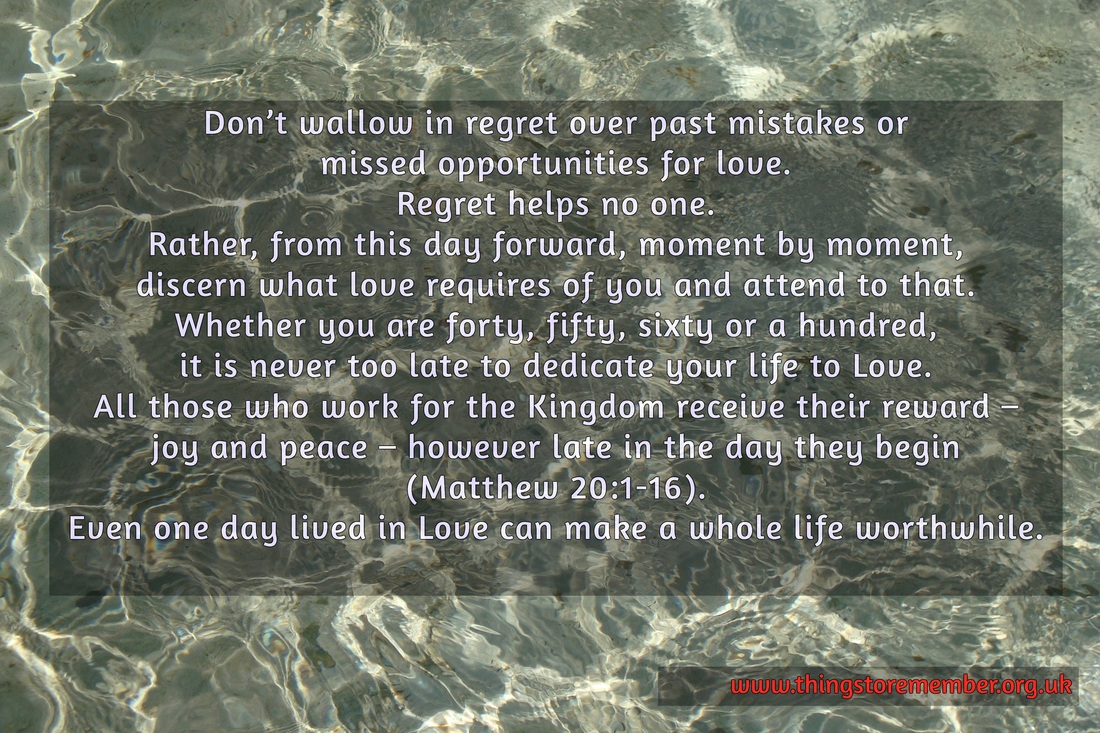
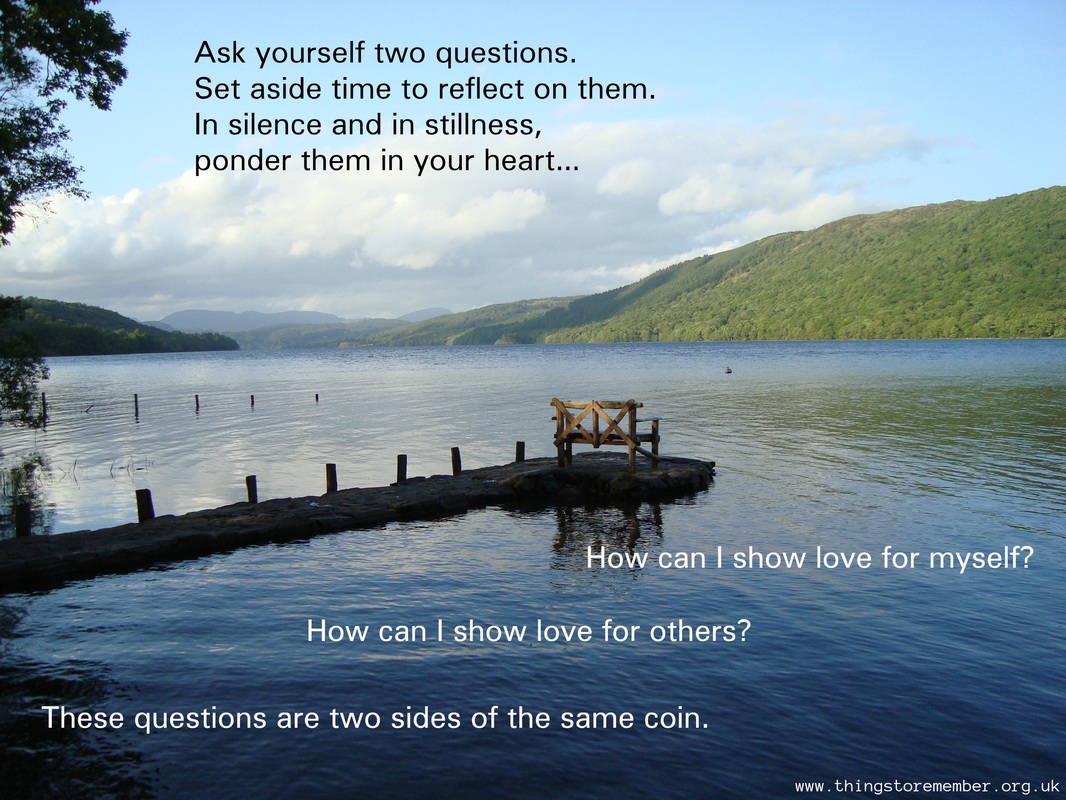

 RSS Feed
RSS Feed

